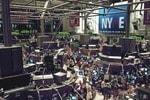
Is Celestica The Best AI Stock to Buy Now?
Technology and hardware business Celestica (NYSE:CLS) has seen massive upward…


Technology and hardware business Celestica (NYSE:CLS) has seen massive upward…

Since January 28th, software stocks in the United States have…

Over the last five days, shares of Instagram and Facebook…
Market Cap: $4.4T
P/E Ratio: 62x
Market Cap: $3.8T
P/E Ratio: 34x
Market Cap: $3.7T
P/E Ratio: 28x
Cooper-Standard Holdings, Inc. [CPS] is up 32.06% over the past day.
Tri Pointe Homes, Inc. [TPH] is up 26.83% over the past day.
Disc Medicine, Inc. [IRON] is down 21.88% over the past day.